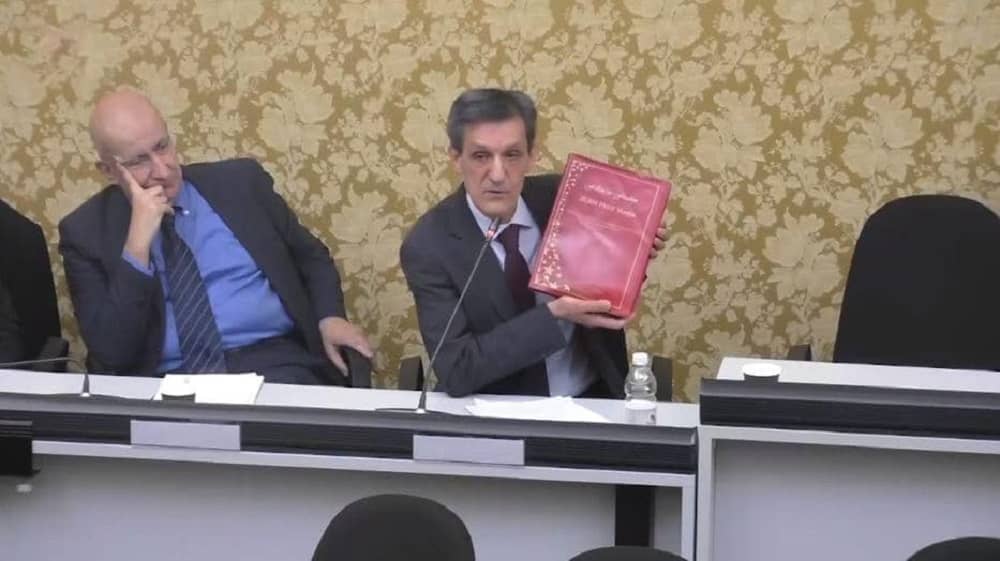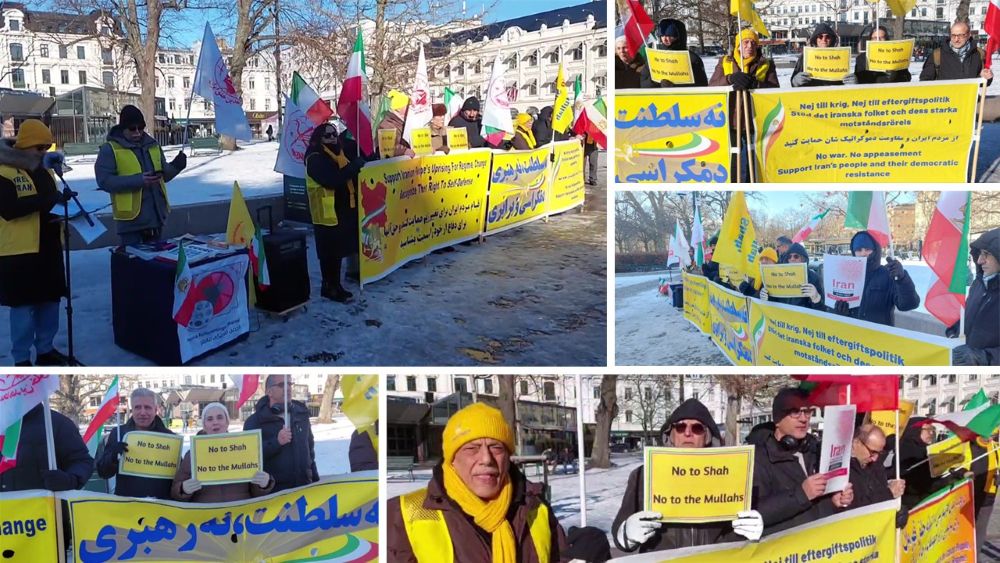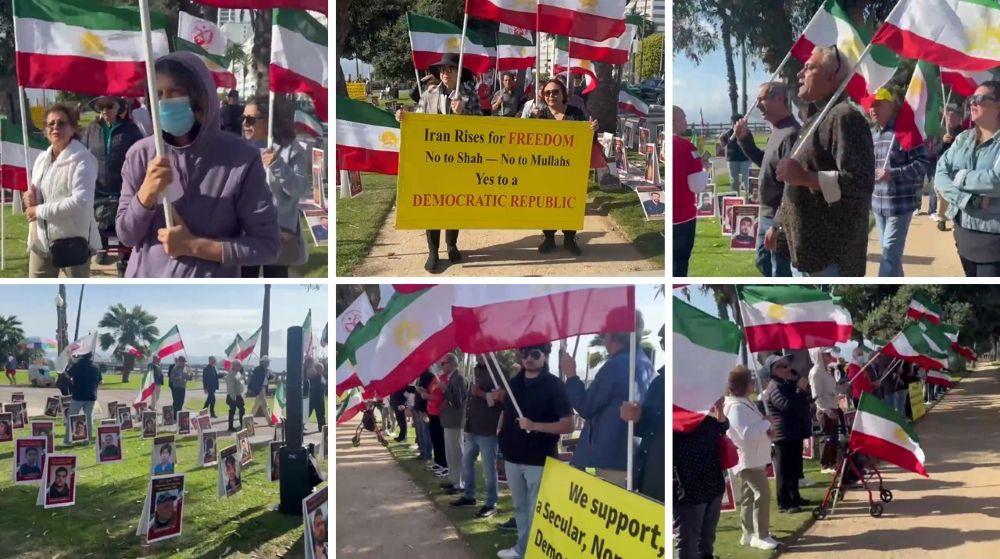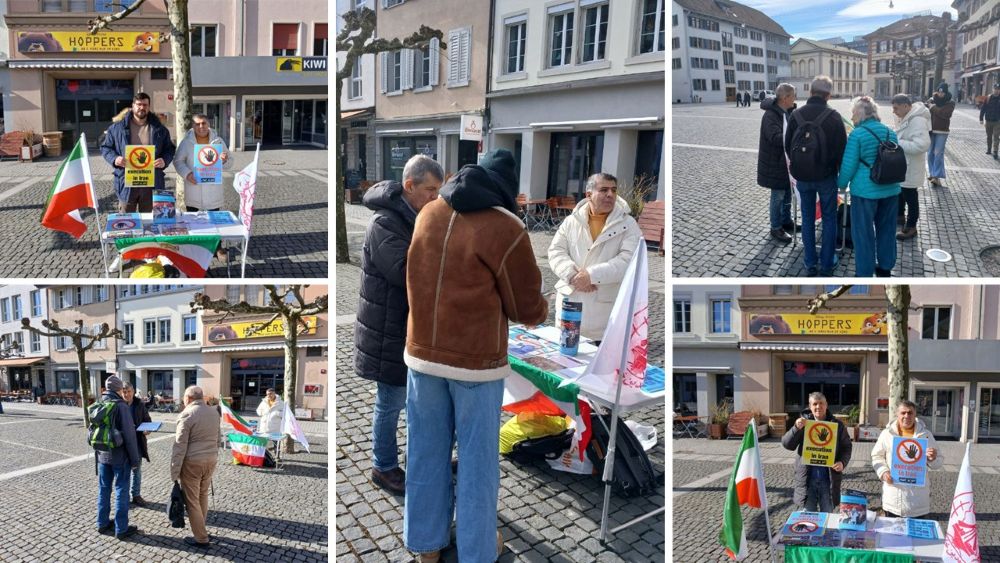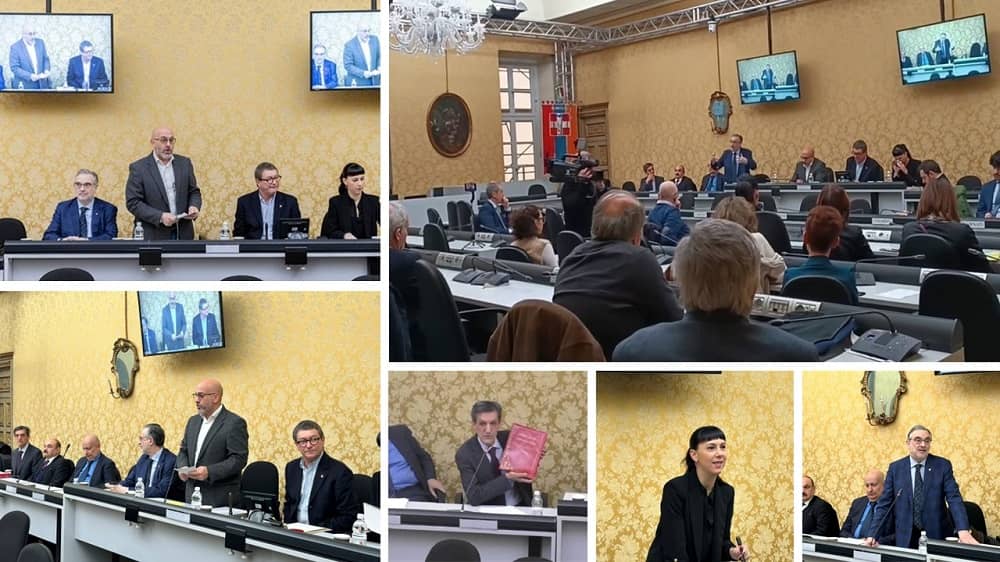
A gathering convened on Thursday, February 21st, at the Provincial Council of Piedmont, Italy, in collaboration with the Provincial Human Rights Committee and the Association of Free and Democratic Iran. The session, titled “Iran: From Internal Repression to Middle East Instability, What Is the Solution?”, took place within the council chamber.
Un convegno del Comitato #DirittiUmaniECivili di @crpiemonte a sostegno dell’#Iran libero e democratico. @StefanoAllasia: “Manteniamo una luce accesa su violenze orrende. #Zambaia e #Leo: “Supportiamo chi si oppone alla dittatura, la fede sia via di pace” https://t.co/fqAx5tnOFe
— Cr Piemonte (@crpiemonte) February 21, 2024
Attended by the Provincial Council’s leadership and several council members, the event featured a video message from Mrs. Maryam Rajavi, President-elect of the National Council of Resistance of Iran (NCRI).
Mrs. Rajavi said: “Today there is no doubt that the Iranian regime is the root cause of countless deaths and bloodshed throughout the region.
As long as this regime exists, war and bloodshed will continue and peace will remain impossible.
The international community should stand in solidarity with the people of #Iran.
They must hold the regime’s leaders accountable for their crimes against humanity.
Europe should designate the regime’s Revolutionary Guard Corps (IRGC) as a terrorist entity.
The international community must recognize the right of the people of Iran and their Resistance Units to resist against the IRGC.”
Message to the Conference at the Governorate Council of Piemonte Province, Italy
— Maryam Rajavi (@Maryam_Rajavi) February 26, 2024
Today there is no doubt that the Iranian regime is the root cause of countless deaths and bloodshed throughout the region.
As long as this regime exists, war and bloodshed will continue and peace… pic.twitter.com/06AjRvCGiA
Furthermore Senator Giulio Terzi, former Foreign Minister and President of the 4th Permanent Senate Commission of EU Affairs delivered a speech at the conference.
Stefano Allasia, head of the Provincial Council and the Provincial Human Rights Committee, inaugurated the session, highlighting, “The uprising of the Iranian people has garnered global attention, albeit at a significant cost, as the Iranian regime persists in widespread suppression.”
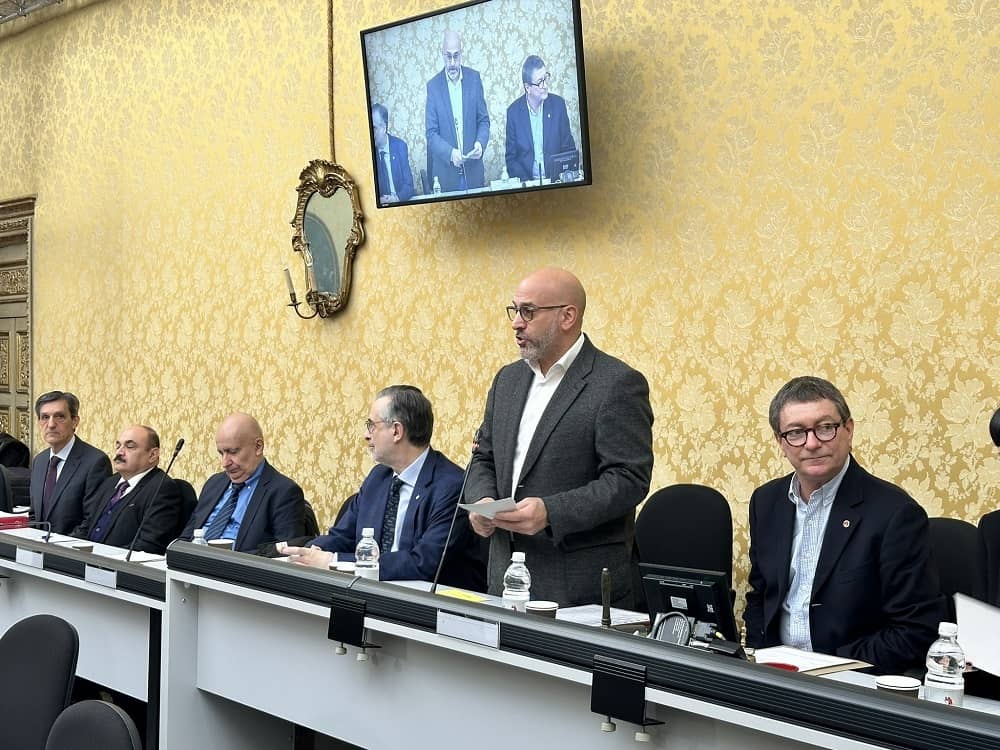
He stressed the imperative for global concern, noting the Iranian regime’s consistent violations of international laws and treaties, encompassing political, civil, and even children’s rights agreements. Allasia underscored the deep-rooted crisis in the Middle East, accentuated by the active involvement of the Iranian regime.
Allasia urged the international community to counteract the destructive role of the Iranian regime to safeguard innocent lives.
During her address, Sara Zambaia, Advisor to the Provincial Governor and Vice Chair of the Provincial Human Rights Committee, articulated, “Our objective, in collaboration with allies, is to tackle the Iranian regime issue and seek a fundamental resolution to this crisis. Our audience comprises individuals well-versed in the Iranian situation and who have been advocating for years.”
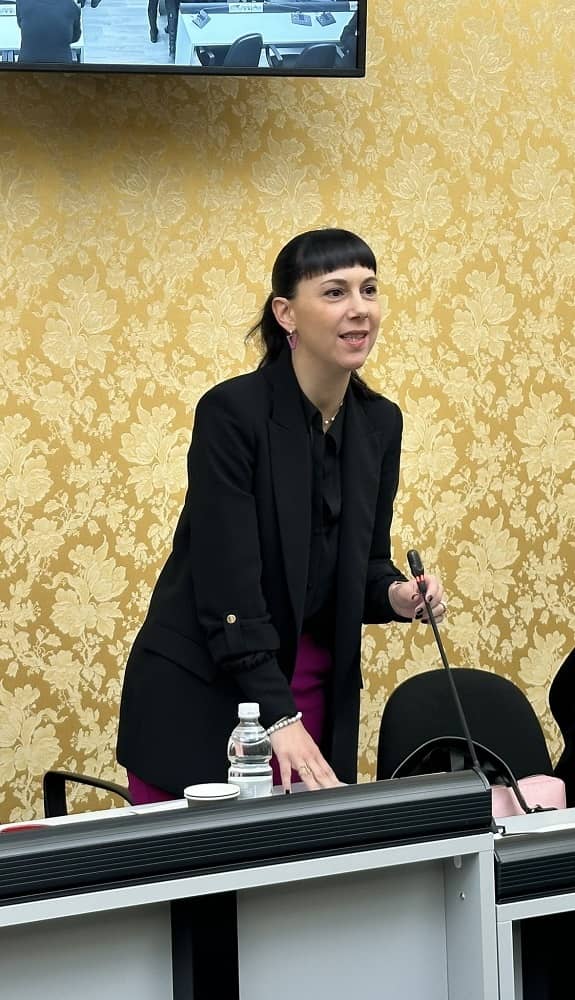
Senator Giulio Terzi, in his speech, echoed the resolute voices of Iranians against tyranny, condemning the regime’s execution of 882 individuals in 2023, with 86 prisoners hanged in January alone. He attributed the turmoil in the Middle East to the regime’s orchestration of terrorist acts and support for proxy forces across the region.
Additionally, Senator Terzi condemned the regime’s terrorist endeavors in Europe, notably the thwarted bombing plot targeting the annual gathering of the Iranian Resistance in Villepinte near Paris in 2018.
He cautioned against the regime’s escalating aggression, especially amidst the Gaza conflict and the resurgence of the nuclear crisis. Amid Tehran’s relentless efforts to undermine opposition groups like the People’s Mojahedin Organization of Iran (PMOI/MEK) and the NCRI, Senator Terzi emphasized the necessity of robust international backing for the Iranian Resistance. He advocated unequivocal support for Mrs. Rajavi’s “Ten-Point Plan” for a democratic, non-nuclear Iran, underpinned by secular governance, gender equality, and human rights, ultimately advocating for a free and democratic Iran.
Giampiero Leo, Vice Chair of the Human Rights Committee of Piedmont Province, observed that the Middle East crisis finds its origins in Iran, denoting it as the primary source of destabilization due to its belligerent policies. He emphasized that the regime’s systematic oppression spares no one, particularly in its treatment of women. Vice Chair Leo called for unwavering solidarity in bolstering the Resistance movement in Iran, asserting that Iran presents a credible alternative that has gained significant traction in recent years and merits the support of all.
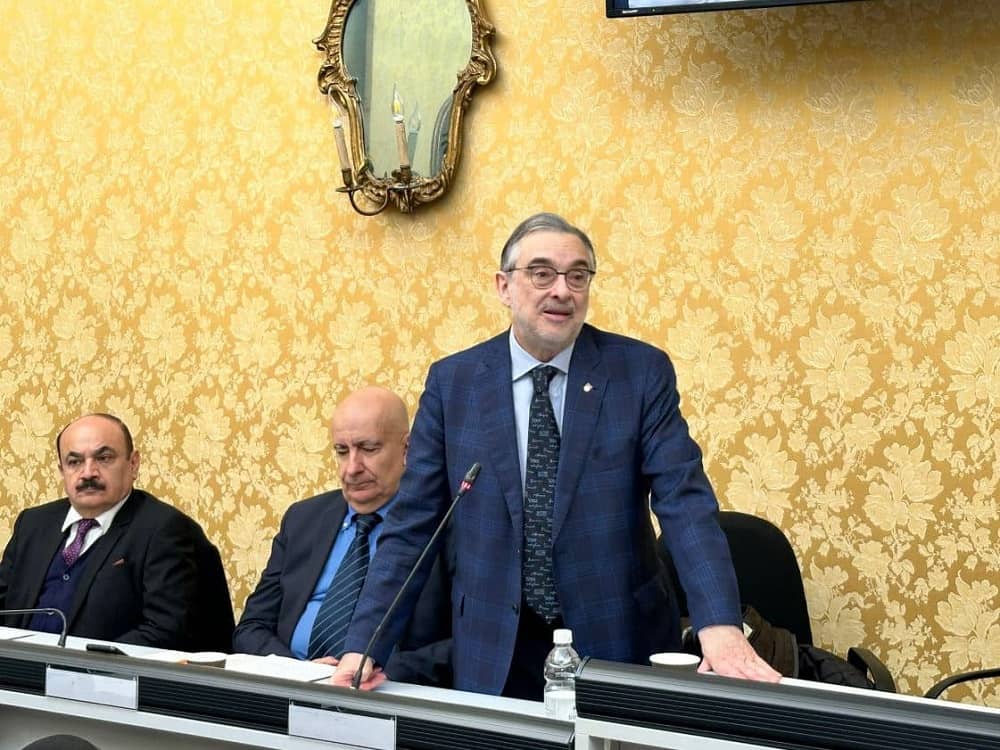
Silvana Accossato, a member of the Provincial Council from the Green Equality Freedom Party, lauded Mrs. Rajavi’s leadership in the democracy struggle, stressing the need for international solidarity amid systematic human rights abuses in Iran and ongoing Middle East crises. She underscored the obligation to support the Iranian people’s national aspirations and organized Resistance, urging the global community to actively engage and distance itself from commercial and military ties with the Iranian regime.
Sean Sacco, a council member from the Five Star Movement, expressed solidarity with the Iranian youth in their quest for freedom, urging support for their cause. He denounced the regime’s religious authoritarianism and highlighted the importance of exposing and countering the regime’s propaganda networks worldwide.
Carlo Riva Vercellotti, a council member from the Brothers of Italy Party, condemned all forms of terrorism, human rights abuses, and nuclear initiatives by the Iranian regime. He advocated for bolstering the Iranian Resistance, including Maryam Rajavi’s Ten-Point Plan, stressing the pivotal role of the MEK and the NCRI in the struggle for freedom.
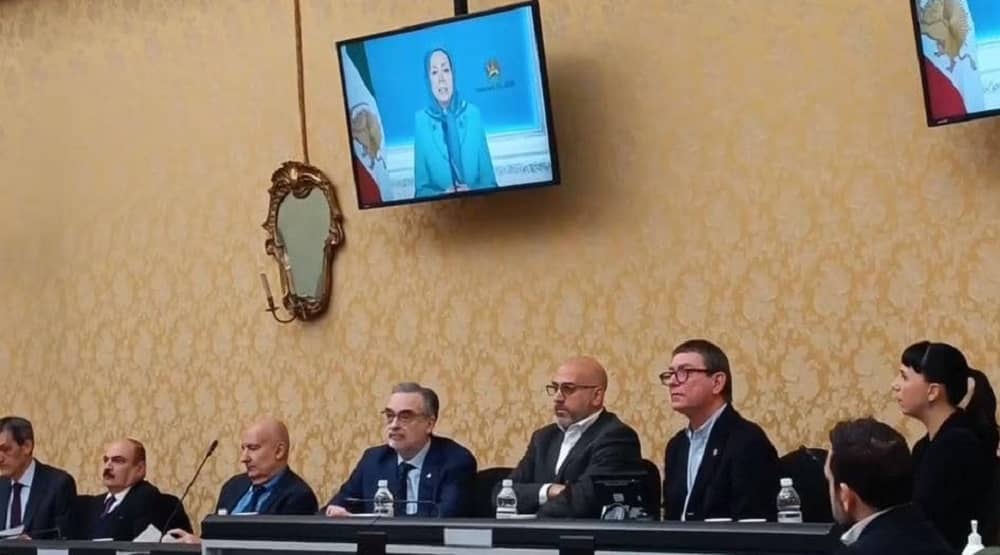
Tullio Monti, head of the Association of Free and Democratic Iran, delivered a comprehensive report on the regime’s terrorist activities and its regional network, emphasizing the resilience of the Iranian Resistance against oppression and terrorism. He emphasized that the only viable and democratic solution lies in the overthrow of the regime, urging the world to support Iranian youth and resistance efforts for freedom and peace. Monti underscored that condemnation alone is insufficient; a departure from appeasement policies and staunch support for the Iranian Resistance are imperative to end the regime’s tyranny.
Valter Coralluzzo, an International Relations professor at the University of Turin, provided an analysis of the Iranian situation, asserting that there is no moderation within the regime. He highlighted the current president’s involvement in the Death Committee responsible for the mass execution of thousands of political prisoners in the summer of 1988. Coralluzzo underscored Maryam Rajavi and her Ten-Point Plan, emphasizing its broad international backing. He suggested that a political revolution is underway in Iran, leading to the regime’s demise, with the Iranian Resistance under Maryam Rajavi’s leadership heralding a renaissance in the region’s prospects.
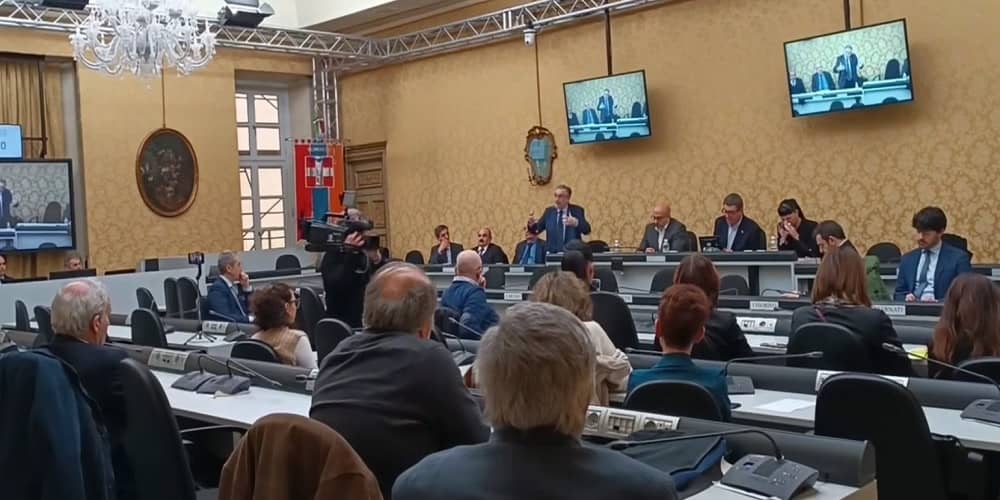
Mahmoud Hakamian, a member of the NCRI Foreign Affairs Commission, addressed the regime’s vilification of the NCRI and the MEK. He discussed the regime’s bid to stage a show trial against the leaders and members of the Iranian Resistance, illustrating the regime’s desperation to cling to power. Mr. Hakamian stressed Europe’s imperative to take decisive action against the regime’s terrorism, including expelling Iranian operatives from European countries and shuttering its embassies, particularly advocating for the designation of the IRGC as a terrorist entity by the European Union.
Dr. Yousef Lesani, Vice President of the Association of Free and Democratic Iran, concluded the session by analyzing the regime’s dependence on domestic suppression and foreign terrorism for sustenance. He criticized Western countries’ appeasement policies towards Tehran, which have come at the expense of human rights in Iran. Dr. Lesani highlighted the expansion of MEK-led Resistance Units despite the regime’s efforts to suppress them.
